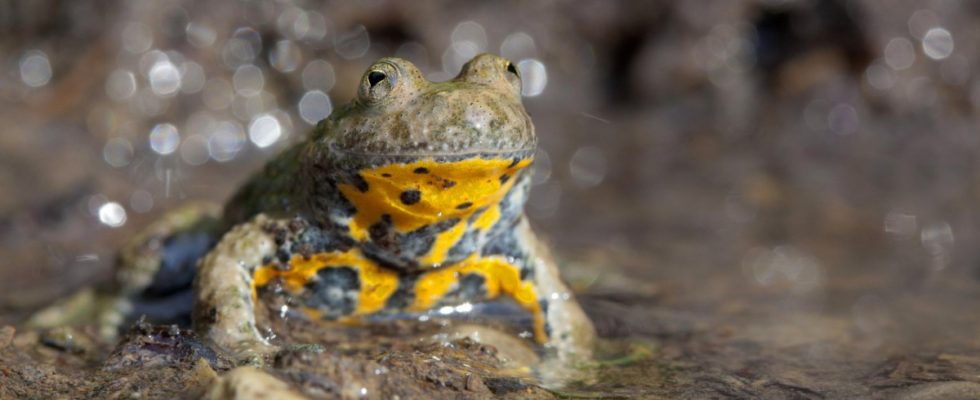The yellow-bellied toad was once widespread in the stream and river landscapes of Bavaria. There it colonized the many ponds and other small bodies of water that formed over the course of the year and dried up again. With the canalization of streams and rivers and the draining of floodplains, these habitats have become rare. The result: Populations of yellow-bellied toads, as well as natterjack toads, green toads, tree frogs and other amphibians, have fallen dramatically. And the few specimens that still exist have to move to other habitats – to quarries, clay and gravel pits, for example. Because ponds and other small bodies of water that are suitable for them also form there.
In order to improve and expand amphibian protection in Bavaria, the State Association for Bird and Nature Conservation (LBV) and the Bavarian Industrial Association for Building Materials, Stones and Earths (BIV) set up the “Temporary Nature” project six years ago. As part of this, building materials companies undertake to make the mining of rock, gravel, sand and clay amphibian-friendly. The LBV advises companies, defines species protection measures for them and implements them together with them. The project is very successful. At the same time, it shows how much amphibians depend on it.
According to counts, up to three quarters of the populations of yellow-bellied toads and the like now live in temporary habitats, as experts call the pools in the mining sites.
Now the project has been honored. On Tuesday, LBV and BIV received the Bavarian State Foundation’s Environmental Prize for this. With the initiative, both associations impressively demonstrated that nature conservation and species preservation could succeed in cooperation between industry and nature conservation associations, said Finance and Home Affairs Minister Albert Füracker (CSU) at the award ceremony of the 30,000 euro prize in the State Chancellery in Munich. The cooperation is quite unique in the environmental scene and was initially not without controversy. Many conservationists viewed the building materials industry with extreme suspicion because, in their view, it was reckless in its exploitation of natural resources. The project has now come to fruition.
“We are pleased that we can shine a spotlight on the many threatened amphibian species with this award,” said biologist Andreas von Lindeiner, who is responsible for “Temporary Nature” at the LBV. The often little-noticed amphibians are an important part of the ecosystem. “Our companies put a lot of passion and joy into your well-being,” explained Stephanie Gillhuber, who is responsible for securing raw materials at BIV. Currently, around 25 raw materials companies with around 50 locations are taking part in the project. An exhibition about “Temporary Nature” opened in the foyer of the Ministry of the Environment on Wednesday. She is supposed to tour through Bavaria.

